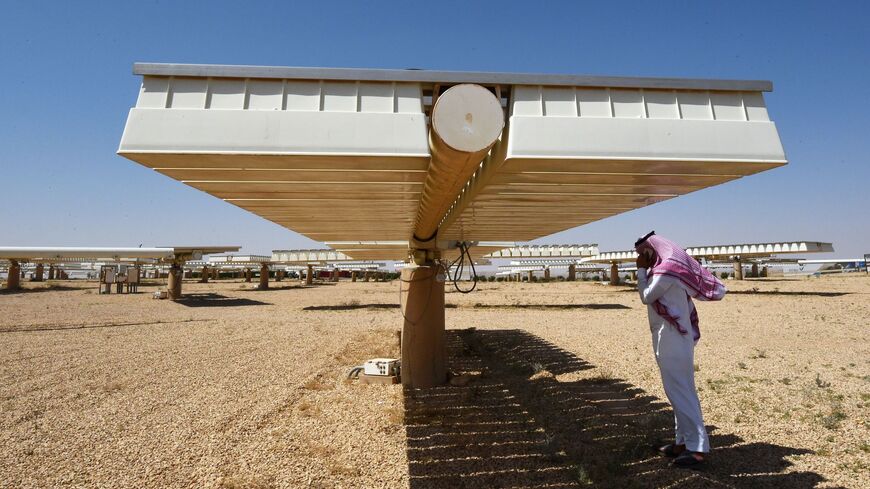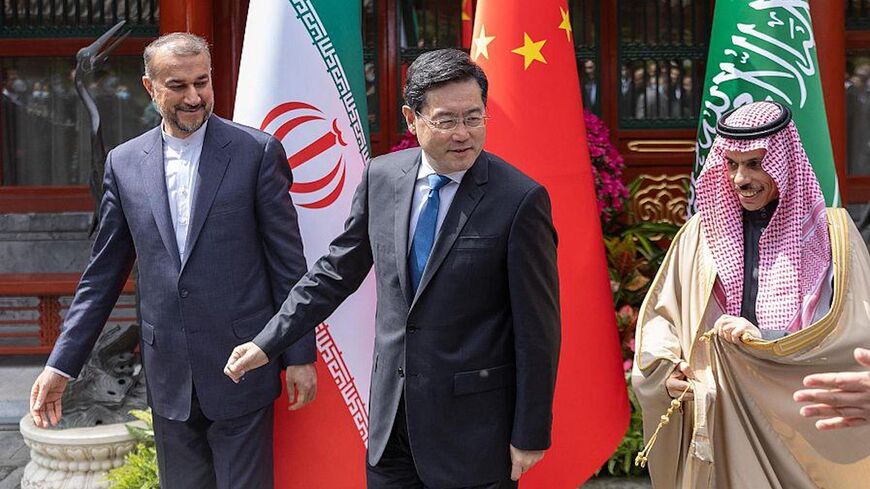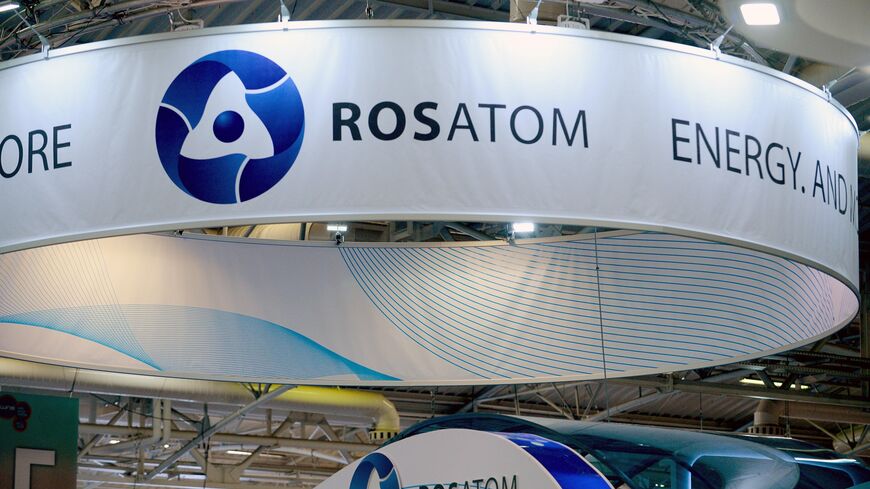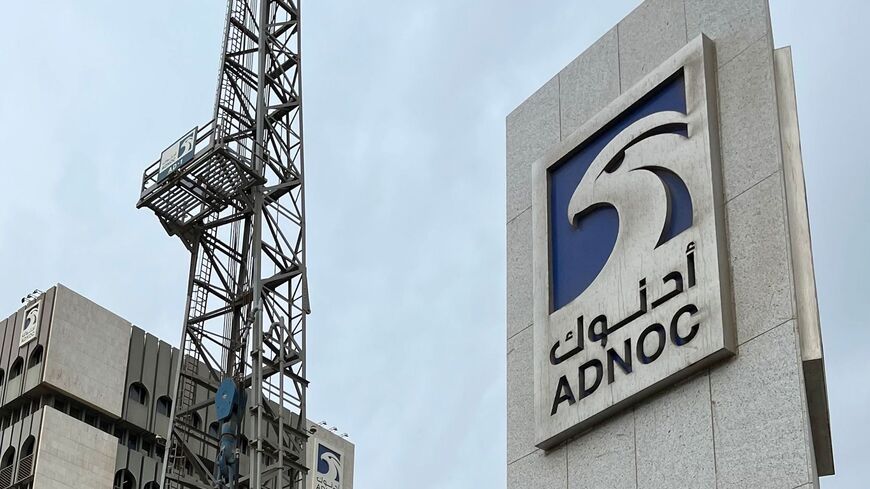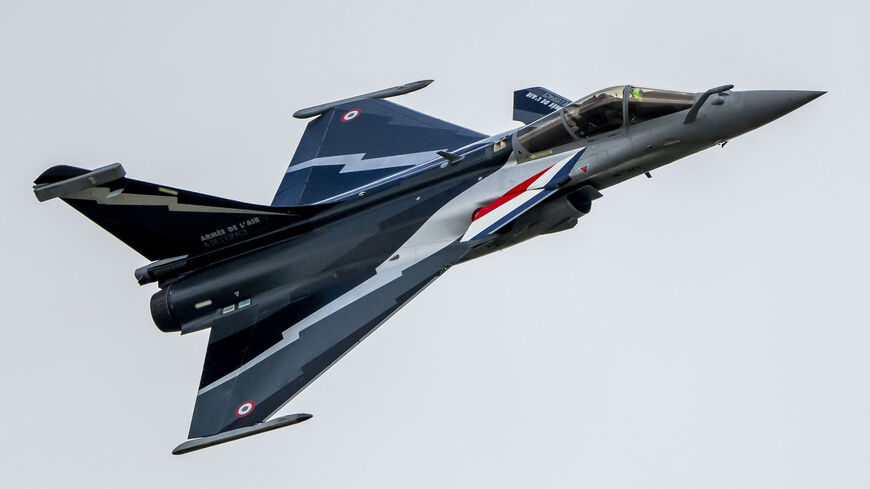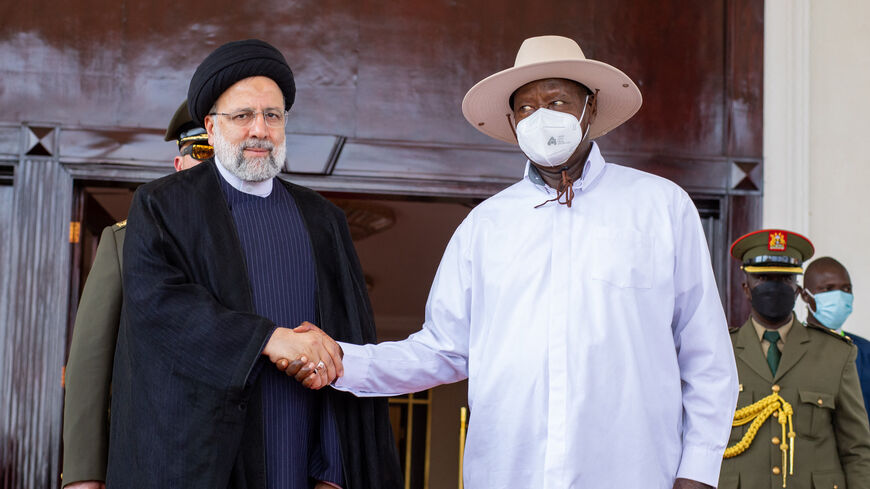Russian nuclear energy in the Middle East heats up
Al-Monitor Pro Members
Dr. Karen E. Young
Senior Research Scholar, Columbia University, Center on Global Energy Policy
Oct. 11, 2022
The MENA region will see a spike in electricity demand of at least 40% by 2030. Meeting that demand while also meeting some ambitious climate goals will require a new energy system of renewable and non-hydrocarbon sources. Nuclear energy for electricity production is becoming more acceptable globally after the Fukushima disaster, and there is a surge of interest, for both political and economic diversification rationales, within the MENA region. There is also a geopolitical impact, as the region veers further from traditional alliance and security partnerships with the United States. Even a partially nuclear-powered region that relies on Russia for reactors, fuel supply and reprocessing will present some challenges to US interests. Just as Gulf oil production is now more closely aligned with Russian objectives, we may also see a regional strategic alliance on nuclear fuel supply, reactor construction and processing underway.
- The gold standard of regional nuclear power production is the Barakah facility in the United Arab Emirates, which was built by the South Korean firm KEPCO and relies on a diversity of fuel sources that are enriched in South Korea and delivered to the UAE. The uranium is sourced from a variety of suppliers, including Rosatom and Urenco (a UK, Dutch, US and German firm.) The Barakah plant will eventually be able to generate 25% of the country's total electricity demand when its four reactors are active (two of four are now online), while preventing the release of over 22 million tons of carbon emissions per annum, equal to 25% of the Emirates' Nationally Determined Contributions (NDC).
- There are two other major nuclear power projects in MENA underway in Egypt and in Turkey. Jordan has a plan for two small modular nuclear reactors, and of course, Iran has its own contested nuclear program. Saudi Arabia has ambitions for a nuclear program and established a holding company to develop nuclear power projects in the kingdom with a 2027 goal. Russia's Rosatom has the contracts to provide the reactors in both Egypt and Turkey. A recent study of the available financing for nuclear reactors globally highlighted the preferential terms the Russian projects have been able to offer, making Western competition less likely to win these awards.
- The Jordanian Uranium Mining Company announced its extraction plant produced 20 kilos of yellowcake from 160 tons of uranium ore. According to the Jordan Atomic Energy Commission (JAEC), the country has estimated conventional uranium reserves of 140,000 tons and there have been collaborative programs in mining exploration with Saudi Ka-CARE since 2017. Jordan plans to send the yellowcake abroad for enrichment and then use it to fuel nuclear reactors. In May 2018, Jordan announced a plan for a small modular reactor with Russia.
- A subsidiary of Russia's Rosatom, Akkuyu Nukleer, is under contract to supply four nuclear reactors to a plant in southern Turkey. Rosatom is building the plant and has recently made a subcontracting award to the firm TSM Enerji, which is owned by three Russian-based firms. The $20 billion nuclear power plant is expected to operate the first of four reactors by 2023, the completion of the plant would generate 4,800 megawatts and produce up to 10% of the country's electricity.
- In 2015, Egypt signed an agreement with Russia to finance and build Egypt's first nuclear power plant. The project cost is estimated at $28.75 billion, with Russian lending $25 billion and Egypt providing the remaining 15% in payment installments over 22 years. The plant, now under construction, will include four reactors, which Rosatom has subcontracted a South Korean firm (Korea Hydro & Nuclear Power) to help build at the El Dabaa nuclear power plant near Cairo.
- Saudi Arabia extended in summer 2022 a Request for Proposals to construct two advanced nuclear power reactors. Russia, China, South Korea and France were asked to submit proposals.
- Israel has two known nuclear reactors (a heavy water reactor at Dimona that has been active since the 1960s, and a research reactor at Nahel Soreq near Tel Aviv, which has been open to inspectors). The government has a policy of openness to the idea of nuclear power for electricity generation, though no plants are currently under construction. Any nuclear program for weapons or defense purposes is not acknowledged or confirmed.
- Iran has one nuclear power plant at Bushehr that generates less than 2% of the Islamic Republic's electricity. Additional enrichment facilities for civilian or military use are, of course, the subject of considerable international concern.
Scenario 1: The political attraction of a civilian nuclear power program takes on more of a geopolitical lens, as more states within the Gulf and the Middle East seek to advance their security and energy needs through nuclear energy. An uptick in tensions with Iran followed with more strategic cooperation between the Gulf and Israel may change the nuclear ambitions and pace of research and development outside of the civilian and power sector.
This scenario seems feasible but not an immediate danger as these programs would not be easy to conceal or quick to build. For some, the costs are simply out of reach, as in Turkey, Jordan and Egypt.
Scenario 2: Smaller nuclear modular reactors become more cost-friendly and accessible within global markets, and the Middle East takes advantage of the trend to meet energy needs and explore new technical capacity.
This scenario depends on changing technology availability of finance and the global sentiment toward nuclear power within our shared climate goals. It is absolutely feasible but not immediate as a trendline.
The risk to US interests is low. Nuclear power remains costly and slow to build. The Middle East, along with many emerging market economies, is more likely to continue to rely on gas-fired power plants to supply most of its electricity needs. Falling costs of solar and wind will also make nuclear less attractive and competitive. Those plants already underway may face further delays and potential contractual disputes if Russia does not deliver on time. This scenario is most likely, at least in the very limited threat of a strong Russian project delivery capacity and lack of interest (and resources) in going beyond civilian nuclear use or transfer within the region.
Karen E. Young is a senior fellow and founding director of the Program on Economics and Energy at the Middle East Institute. She was a resident scholar at the American Enterprise Institute, and taught courses on the international relations and economy of the Middle East at George Washington University and at the Johns Hopkins School of Advanced International Studies. Before joining AEI, she served as senior resident scholar at the Arab Gulf States Institute, a research and visiting fellow at the Middle East Centre of the London School of Economics and Political Science, and an assistant professor of political science at the American University of Sharjah in the UAE.
We're glad you're interested in this memo.
Memos are one of several features available only to PRO Expert members. Become a member to read the full memos and get access to all exclusive PRO content.

Already a Member? Sign in
The Middle East's Best Newsletters
Join over 50,000 readers who access our journalists dedicated newsletters, covering the top political, security, business and tech issues across the region each week.
Delivered straight to your inbox.
Free
What's included:
Free newsletters available:
- The Takeaway & Week in Review
- Middle East Minute (AM)
- Daily Briefing (PM)
- Business & Tech Briefing
- Security Briefing
- Gulf Briefing
- Israel Briefing
- Palestine Briefing
- Turkey Briefing
- Iraq Briefing
Premium Membership
Join the Middle East's most notable experts for premium memos, trend reports, live video Q&A, and intimate in-person events, each detailing exclusive insights on business and geopolitical trends shaping the region.
$25.00 / month
billed annually
$31.00 / month
billed monthly
What's included:
Memos - premium analytical writing: actionable insights on markets and geopolitics.
Live Video Q&A - Hear from our top journalists and regional experts.
Special Events - Intimate in-person events with business & political VIPs.
Trend Reports - Deep dive analysis on market updates.
We also offer team plans. Please send an email to pro.support@al-monitor.com and we'll onboard your team.
Already a Member? Sign in


